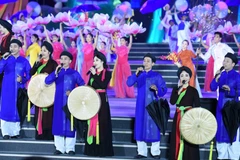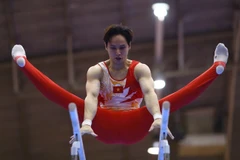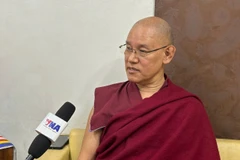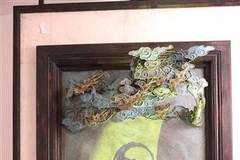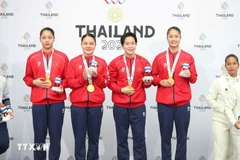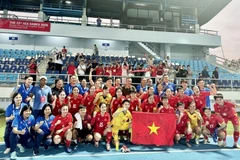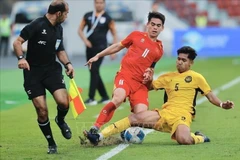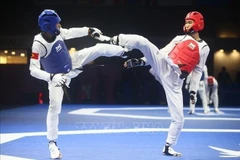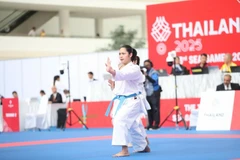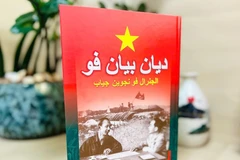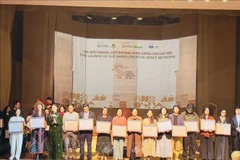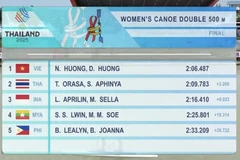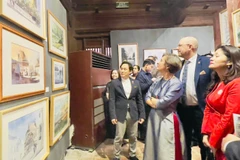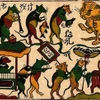After arriving in his adopted country at theage of 13, Hong Viet Hai worried that he would not be able to pursuehis dan tranh (16-stringed zither) lessons that he had been taking in HoChi Minh City.
But soon after his family settled down in Washington state, Hai found a teacher of traditional Vietnamese music.
However, he had little time for serious practice as he was busy with adapting to a new culture and high school.
Butin his final year at the University of Washington, where he graduatedwith a bachelor's degree in biology and chemistry, Hai devoted more timeto the dan tranh.
And he continued to do so after enrolling inBastyr University in Kenmore, Washington, where he earned a master's anddoctorate degree in acupuncture and Oriental medicine.
In 2001,Hai and two of his Vietnamese friends began to schedule regularmeetings to practice and teach others traditional Vietnamese music.Soon, the class grew to 70 to 80 students.
The class, which hestill teaches, is a way for him to remember Vietnamese culture, Haisays. His youngest student is six years old, while the oldest is 82.
"Duringmy first years living in the US, it was only the sound of traditionalVietnamese music that moved me," he says. "I don't see this as really aclass. I just want to share my knowledge of traditional music to thosewho love it."
His medical clinic, the Silver Crane Acupunctureand Oriental Medicine Clinic in Everett, Washington, always hastraditional Vietnamese music playing in the background.
Someclients were a bit uncomfortable listening to it at first, he says, butafter he described the healing power of the music, they began toappreciate it more.
Between 10am and 7pm every day, he works inthe clinic. After 7pm, instead of taking a rest, Hai plays music withsome of his students. He reserves Saturday and Sunday for his musicclass.
He speaks Vietnamese in the class at times, which has helped improve the language skills of some students, he says.
"Theidea of opening a traditional music class began when I wanted to showVietnamese who had been born in the US something about their origin andculture," he said.
Hai says that he has brought musical instruments to the class as a way of igniting their interest.
"I always asked them to touch it. After that, they wanted to learn," he says.
Withhis more accomplished students, Hai later formed the Huong Viet (TowardVietnam) Traditional Music Group, which performs in the US.
InJuly, Hai returned to Vietnam and played with overseas-Vietnamesezitherists as part of an international zitherist festival held in HCMCity.
Nguyen Thuy Loan told Vietnam News during a trip to HCMCity that she was fortunate to meet Hai in the US, where she has livedfor 38 years.
"My sister and I visited Vietnam once, and beforereturning to the US, we bought two 16-stringed zithers. At first, wejust bought it to decorate our home and we didn't expect to find ateacher in the US," she recalls.
Her sister heard about Hai, andthey both visited his clinic and began to take his dan tranh lessons,says Loan, who works at Boeing.
Pham Thuy Tien, 14, who was bornin the US, says she heard about Hai's class from her mother's friend,who was studying with him.
"I like dan tranh because it'straditional music. At first I thought it was very easy, but later Ifound it to be technically difficult," she says.
Japanese EtsukoIto, one of Hai's best students, who can speak Vietnamese well, saysshe met Hai during a concert in Seattle in 2007.
"At first I wanted to learn how to play the dan bau (monochord), but after meeting Hai, I changed to the dan tranh," she says.
Despitethe differences in nationality, age and gender, Hai's students sharehis love for and respect for Vietnamese traditional music and intend topractice and play for years to come.-VNA
